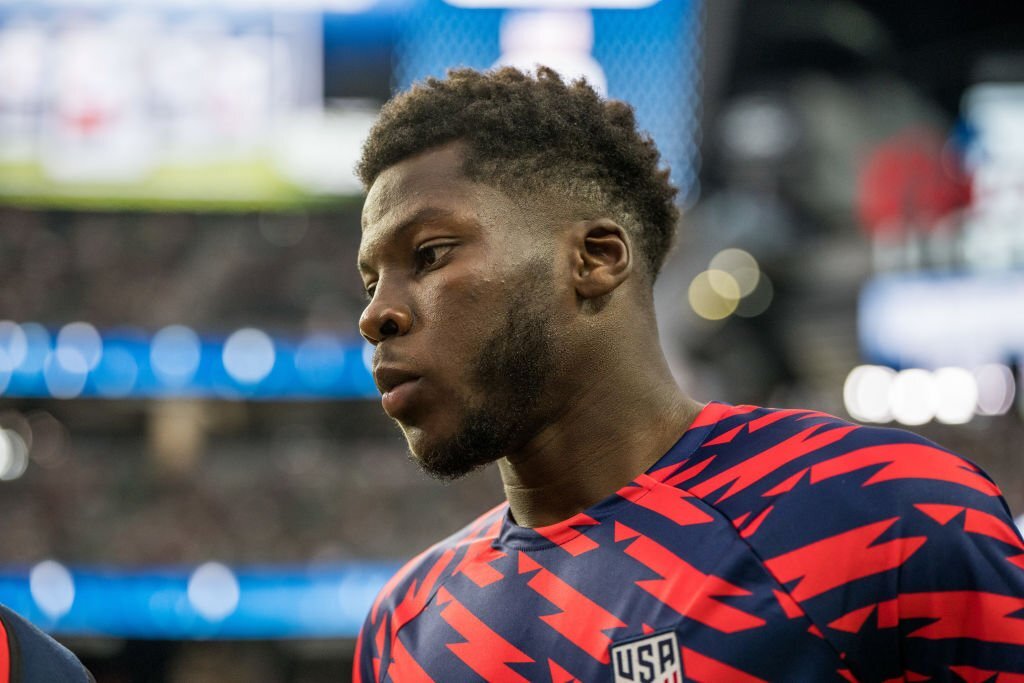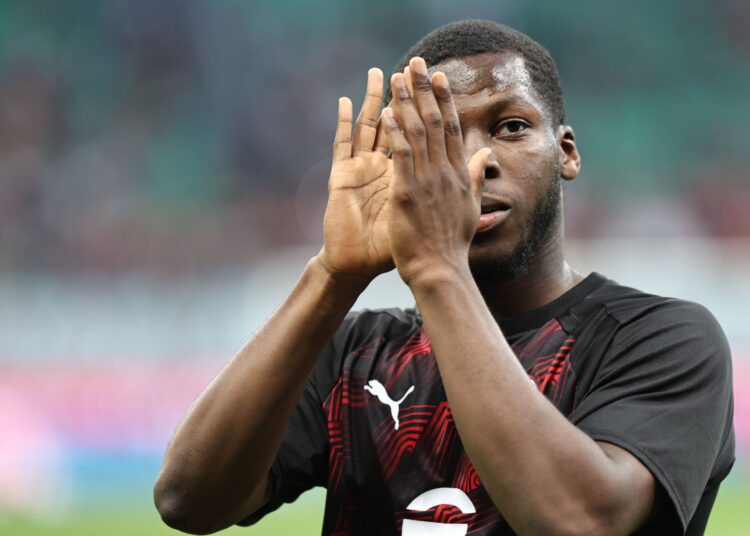Yunus Musah spoke to The Athletic about his career and what led him to play for clubs in England, Spain, and Italy at the age of 21. Here are his words, as transcribed by our colleagues at the Italy-based website Milan News.
“I think I have taken a bit from my father. He left at 16. He tells me his stories. He is a great inspiration. We have a good life in Europe now. It is all thanks to him, who went through all this to get us to where we are with much less money than we have now.”
What are these stories about?
“The stories of migrants. He had to do a lot of things – so, for example, when he was in Italy, he slept in the car and slept outside. He rode his bike for two hours to work – there and back, so four hours. Then, (when he was more successful), he switched to a motorbike and then a car. This was before I was born. But it makes me feel really grateful. Why do you complain about small things when your father went through all this? It’s an eye-opener. I’m very grateful.”
On Zlatan Ibrahimovic.
“Zlatan is very present. He’s nice. He comes to talk to us. He’s a great mentor. Everyone knows how he is: he’s demanding and pushes you. He says: ‘We’re at Milan, we have to win’. It’s not enough to win some games and not win others. Everyone wants to come to this club, so the place is not guaranteed. Things like that keep you on tenterhooks.”
Expectations for the new season:
“I would like to play a lot of games, be really involved, score goals - all positive things. Every season you start with ambitions and things you want to improve. I also want titles.”
On Paulo Fonseca:
“He gives you a lot of information, I'm learning a lot, he's helping me with my body position, with receiving the ball, he's helping me play with the ball as a midfielder, to receive it and move it.”
A few weeks ago there was speculation about a possible transfer for Musah:
“I see myself here this season, the director hasn’t kicked me out (laughs, ed.). So I’ll stay here and I want to work hard to play a lot of games and be really effective.”
His earliest memories of football in Italy:
“My mother had an oriental goods store. We lived in a condominium. Our house is up there.” He points to the upper floor. “And then the store was downstairs. There was a little park on the side and we played there all summer. And then when we were tired, we would go to the store and get a drink because she had a fridge full of Coca-Cola, and then we would go back out.”
Musah continues the story of the store:
"There were African foods - sweet potatoes, plantain chips. When there were phone booths in the stores, there were those. As a child I never saw anything cheap. And it seemed to me that we were rich. We weren't, but my parents made it seem that way. We had everything we needed, food-wise. I didn't worry about clothes or anything, but when I look back, we only had what we needed. And my parents never made us feel like we didn't have money. But in reality, they were always struggling and always working very hard. They are wonderful people."
Did your parents want you to be a footballer?
"No, my parents just wanted me to have a good education, which they didn't have. So they wanted me to have an education that would obviously help me get a good job. I also played football because I really liked it. Then, when things got more serious, they saw that there was a possibility. So they pushed."
His family is Muslim and Musah attributes his success to his faith.

“It’s everything. It plays a huge role. I truly believe that without God I wouldn’t be in this position because there are millions of people who work hard and they’re not meant to be in certain positions, even though they work probably harder than me. They have their own path. This is my path and I’m grateful for it. And I have to really appreciate that it was chosen for me.”
At nine years old, the family moved to the east and Musah joined the Arsenal academy:
"The other players were ahead of me. They had already played there and were technically more gifted than me. I just had to work hard. And in the end, I became one of the best.”
On Bukayo Saka, his teammate in the Arsenal youth team:
“The difference is that when he was young he didn’t play on the right. He played left back and left wing. It’s impressive. He’s improved too, it’s crazy. Sometimes you see players who do better in the youth teams because it’s easier. But then he’s doing better in professional football. Now he’s getting even more noticed.”
At the age of 16, Musah made a bold and unexpected choice: he left Arsenal, even though the club didn't want him to leave. Where did the courage to do so come from?
“I just wanted to pursue my passion and my goals. I also had faith in myself. I believe in God: these things together make me feel capable of making big decisions.”
Why Valencia?

“I was 16. I felt I could start training at least in the first team. At Arsenal I don’t think I would have had the chance. So I was willing to go anywhere to have an opportunity at a good level. I thought: ‘Yes, OK, I’ll make this decision’. And whether it starts well or badly, I won’t let the opportunity slip until it works for me. And fortunately, in the end, it worked out.”
Were there many clubs to choose from?
“I had many options. I could have gone to any English club, really. Valencia had the best path for me. Valencia was also developing a lot of young players. They had the most convincing project. And I’m very grateful that I went there. It was fantastic.”
A reflection on this year's disappointing Copa America:
“We've learned a lot, both personally and collectively. For example, match management. I didn't have a big role in this Copa America, but when the opportunity arose I don't think I had as much of an impact as I should have. You don't get these opportunities very often, so you have to make an impact when you get them. I have to learn that. From a team perspective, you just have to make sure you're paying attention in games like the one against Bolivia and the one against Panama, against opponents you have to win against."
The disappointing run had consequences: the US coach was fired.
“It was hard to see Gregg go. He was the manager who brought me here. A great manager, a great person. It was very sad to see him go. Hopefully, the next manager will be as good as Greg and help us do great things.”
















